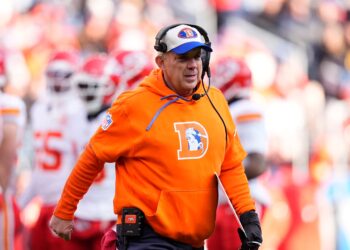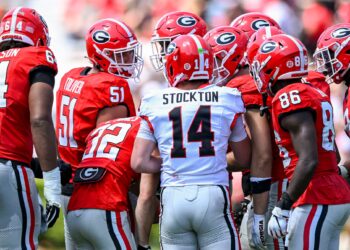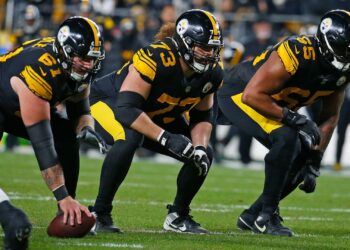
The Green Bay Packers revealed their annual financial report on Tuesday. It was another massive financial year for the team and the NFL.
The Green Bay Packers and the other 31 NFL teams for the first time received $400 million in national revenue from the league.
Packers President and CEO Mark Murphy revealed the team’s financial statement on Tuesday at Lambeau Field ahead of the annual shareholders meeting, which will coincide with the start of training camp on Monday.
The 32 teams split about $12.87 billion as the NFL continues to find new ways to create record revenue. Last year marked the first time the NFL split $12 billion in revenue with the teams. The year before that was the first time topping $10 billion.
“I think probably the main takeaway is that it’s another strong year from a financial standpoint for the Packers, and I think really speaks to the popularity overall of the NFL,” Murphy said.
Here is the report for fiscal-year 2024, which ended on March 31.
Total revenue: $5654.1 million in 2024. $610.3 million in 2023. Up 7.2 percent.
National revenue: $402.3 million in 2024. $374.4 million in 2023. Up 7.5 percent.
Local revenue: $251.8 million in 2024. $235.9 million in 2023. Up 6.7 percent.
Total expenses: $594.0 million in 2024. $541.6 million in 2023. Up 9.7 percent.
Profit from operations: $60.1 million in 2024. $68.6 million in 2023. Down 12.5 percent.
Net income: $98.1 million in 2024. $35.6 million in 2023. Up 175.8 percent.
The Packers’ profit did decline, with stadium expenses and increased player salaries increasing at a higher rate than revenue. However, with increasing television revenue and labor peace through a collective bargaining agreement that will run through the decade, business could hardly be better.
“We’re very, very fortunate,” Murphy said. “It’s been positive for everybody. It’s a model that’s worked. And, obviously, the popularity of the NFL has been a key part of that, as well.”
National revenue was up 7.5 percent from last year. Streaming is a big reason why. What Murphy called the “strategic” streaming of games, such as Amazon and Peacock last year and the new Christmas package on Netflix, will continue to increase the size of the financial pie.
“One of the things the league has talked about is trying to meet people where they are,” Murphy said.
Last year, 93 of the 100 most-watched TV broadcasts were NFL games. So, the league is finding new days and new outlets to feed the fans’ so-far unquenchable taste for the NFL.
“It’s one of the few things that people watch live anymore,” Murphy said. “We’re very fortunate that we’re in that position and the networks are willing to pay, but we’re also looking at where the future is going and, certainly, streaming is growing.”
Because of all those TV deals, national revenue easily covers player salaries, which allows the Packers to pour its local revenue, which increased 6.7 percent last year, into keeping the historic Lambeau Field modern and vibrant. Over the last two decades, Murphy said, the team has invested $600 million into the stadium. Not a penny has come from the public.
While expenses were up 9.7 percent, the team’s investment fund went from a $20.5 million loss to a $64.3 million gain. With a laugh, Murphy noted it was an increase of a “mere” 413 percent, thanks to a soaring stock market.
With that, the team’s incoming president and CEO, Ed Policy, will inherit a franchise that’s on an exceptionally strong financial footing. In July 2025, Murphy will reach the mandatory retirement age of 70 and hand the keys to Policy.
The Packers are the NFL’s smallest-market team but perennially rank near the top of the second quartile in revenue. With quarterback Jordan Love leading what appears to be an ascending team, a strong on-the-field product will continue to power the financial machine through stadium tours, pro shop sales and sponsorships.
“We are in a good, strong financial position, but there will be challenges along the way,” Murphy said. “Things are changing within the league with the new ownership, the private equity, new owners, billionaires. The revenue sharing, I don’t see that changing in the short term, but if that ever changes, that could be an issue.”
Private equity is a big issue to watch. The NFL is considering allowing private equity ownership of up to 10 percent of a team’s value. If that happens, teams could have a major infusion of cash. Without an owner, the Packers would not be eligible to participate.
Thus, the team’s corporate reserve fund increasing from $460 million last year to $536 million this year could be crucial to the team’s long-term viability.
“We don’t have a rich, deep-pocketed owner,” Murphy said. “The economics of the league are changing pretty dramatically.”
More Green Bay Packers News










Discussion about this post